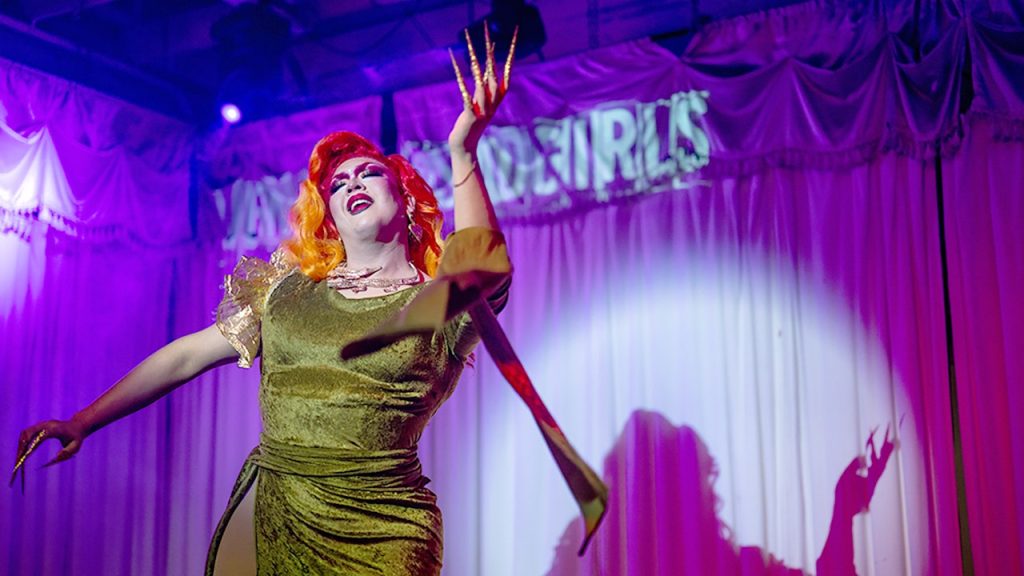Listen to the article
Federal Court Allows Texas to Enforce Controversial Drag Show Restrictions
A federal appeals court has ruled that Texas can enforce its 2023 law restricting drag performances in public or when children are present, overturning a lower court decision that had blocked the measure as unconstitutional.
The three-judge panel from the Fifth U.S. Circuit Court of Appeals determined on Thursday that most plaintiffs challenging the law—including drag performers, production companies, and pride organizations—failed to demonstrate they would conduct “sexually oriented performances” as defined by the legislation, meaning they could not claim harm from the restrictions.
Senate Bill 12, passed by Texas lawmakers last year, prohibits drag performers from dancing suggestively or wearing certain prosthetics on public property or in the presence of minors. The law imposes serious penalties for violations, including a $10,000 fine for business owners hosting such performances and Class A misdemeanor charges for performers.
Notably, the court’s ruling suggests that not all drag performances would fall under the law’s restrictions. This distinction addresses a key concern of critics who argued Republican lawmakers were attempting to broadly categorize all drag shows as sexually explicit content.
“When asked whether the performers ‘simulate contact with the buttocks of another person,’ the owner testified that the performers sit on customers’ laps while wearing thongs and one performer invited a ‘handsome’ male customer ‘to spank her on the butt,'” the ruling stated, describing specific performances that might be restricted under the law.
Judge Kurt Engelhardt, joined by Judge Leslie Southwick, wrote in a footnote that there is “genuine doubt” that such actions are “actually constitutionally protected—especially in the presence of minors.” Judge James Dennis partially dissented, warning that this interpretation “runs headlong into settled First Amendment jurisprudence and threatens to mislead on remand.”
The ruling represents a significant reversal of U.S. District Judge David Hittner’s September 2023 decision, which had found the law unconstitutional on First Amendment grounds. At that time, Hittner wrote that it was “not unreasonable” to believe the restrictions could affect a range of activities including live theatre or dancing.
Texas Attorney General Ken Paxton celebrated the appeals court decision, stating in a news release that he “will always work to shield our children from exposure to erotic and inappropriate sexually oriented performances.”
“It is an honor to have defended this law, ensuring that our state remains safe for families and children, and I look forward to continuing to vigorously defend it on remand before the district court,” Paxton added.
The ruling comes amid a broader nationwide push by conservative lawmakers to restrict drag performances, particularly those accessible to minors. Similar legislation has been introduced in numerous states as part of what some see as a wider effort to limit LGBTQ+ expression.
The plaintiffs, represented by the ACLU of Texas, expressed disappointment with the decision but pledged to continue their legal fight.
“We are devastated by this setback, but we are not defeated,” they said in a joint statement. “Together, we will keep advocating for a Texas where everyone—including drag artists and LGBTQIA+ people—can live freely, authentically, and without fear. The First Amendment protects all artistic expression, including drag. We will not stop until this unconstitutional law is struck down for good.”
The case now returns to the district court to reconsider specific aspects of the measure related to the Texas attorney general’s enforcement authority. The court also removed most defendants from the case in its remand to the lower court.
Fact Checker
Verify the accuracy of this article using The Disinformation Commission analysis and real-time sources.




7 Comments
This is a complex issue with strong opinions on both sides. It will be interesting to see how the courts continue to interpret and apply the Texas law restricting some drag performances.
While I understand the motivation behind the Texas law, I’m relieved the appeals court acknowledged that not all drag shows may fall under the restrictions. Nuance is important here.
As a fan of artistic expression, I hope the courts can find a way to uphold free speech while also setting reasonable guidelines around adult-oriented content. It’s a tricky line to walk.
This is a politically charged issue, but I’m glad the appeals court left room for some drag performances to continue. The details will be key as this plays out.
Absolutely, the specifics around what constitutes a ‘sexually oriented’ performance will be critical. Striking the right balance is crucial.
The appeals court ruling seems to leave room for some drag performances to be allowed, which could help address concerns over overly broad restrictions. Parsing the legal details will be crucial.
Agreed, the nuance around which specific performances may be permitted is important. Avoiding a blanket ban while still protecting minors is a delicate balance.